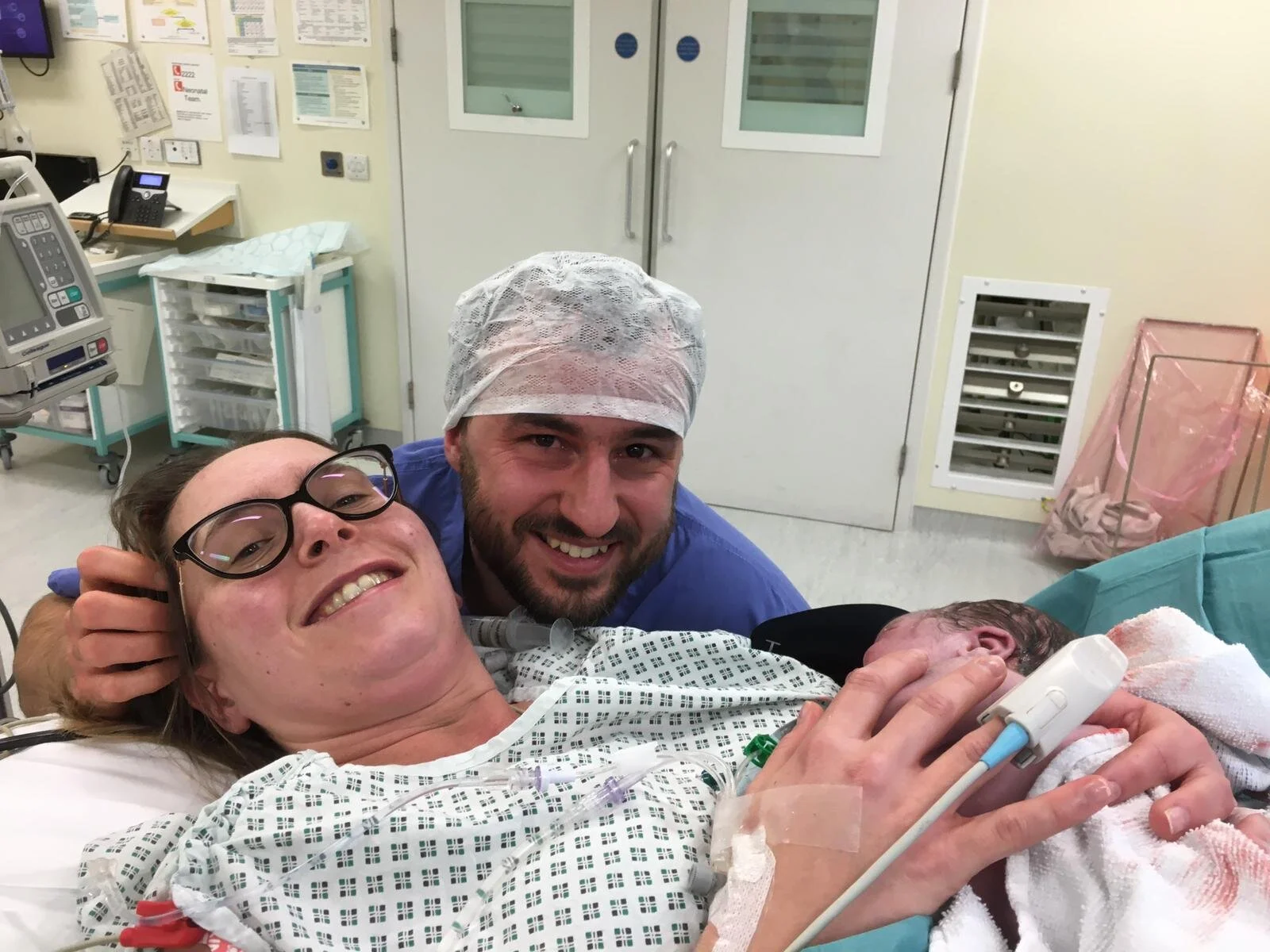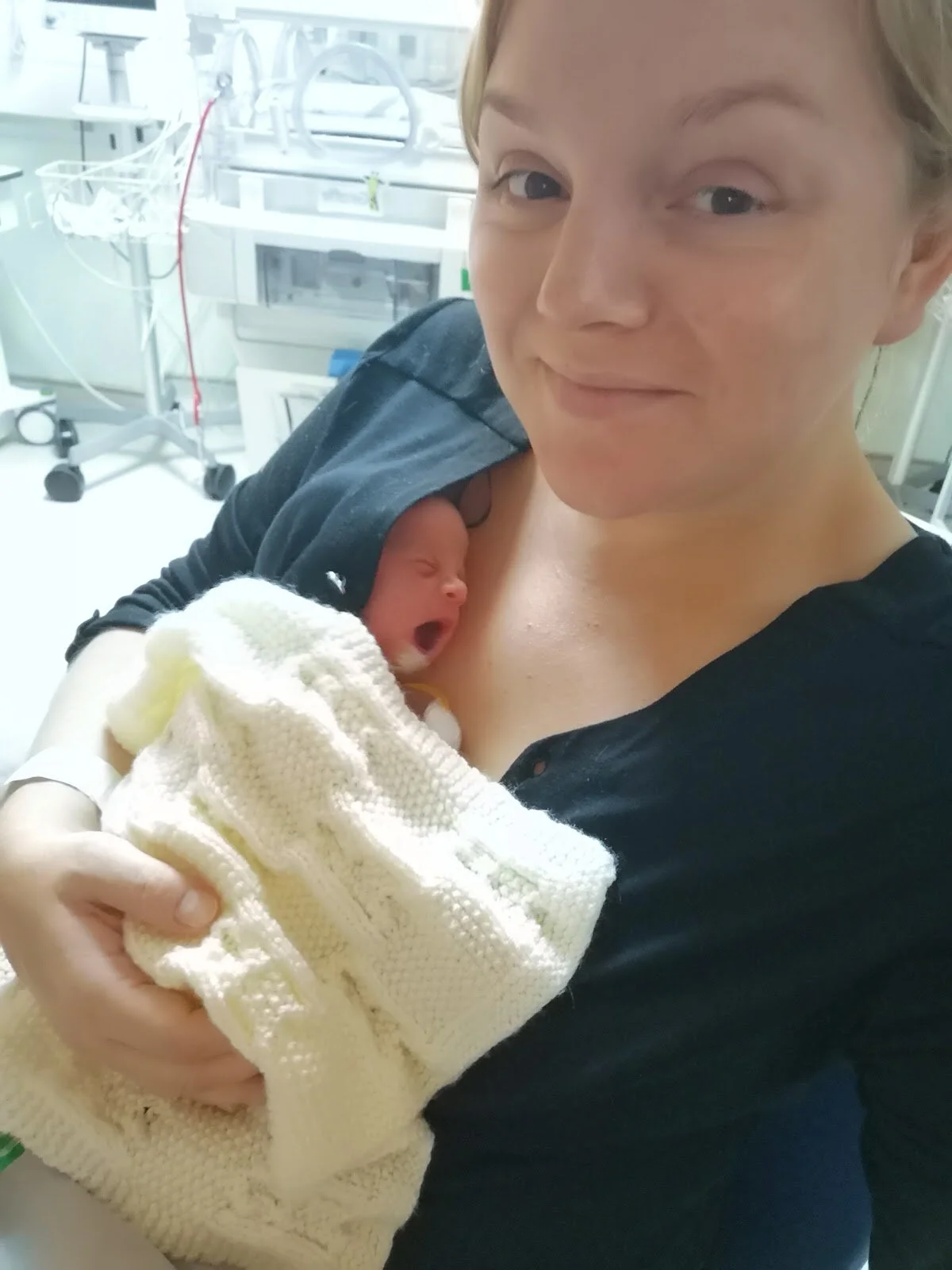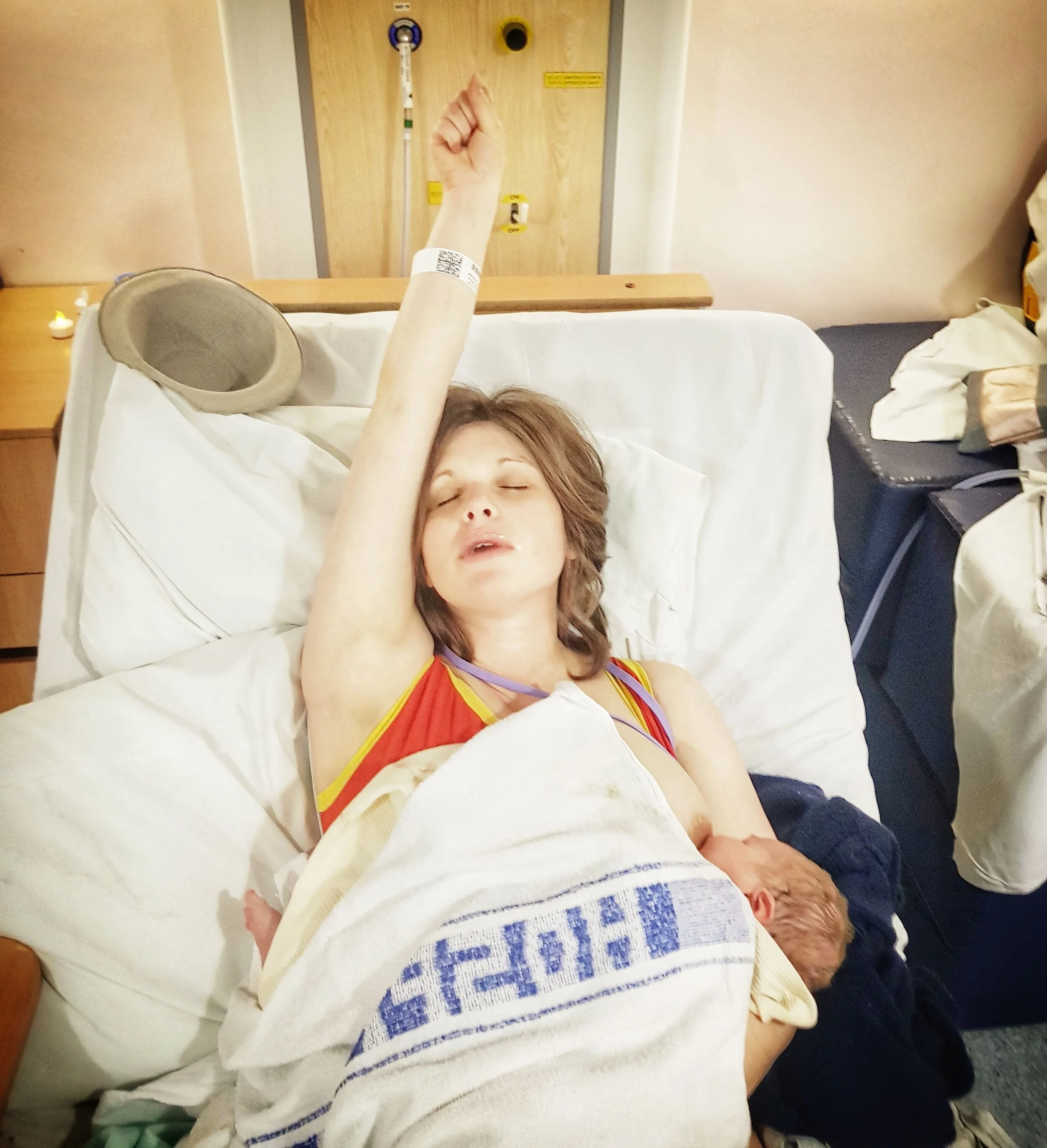The pandemic has created uncertain times and the past 18 months has thrown up a lot of grief and discomfort. This has been highlighted in the birth world in recent weeks, with conversations becoming increasingly polarised and sometimes distressing to witness or engage in. Why is it that at times of crisis and change we begin to fight?
Read MoreAs the firstborn child from a large family, having children always appealed to Sarah. Only time could reveal when, how and with whom. Her story of becoming a mum starts with two suitcases and a one-way ticket, a sudden relocation and the whirlwind of a global pandemic. She shares how giving birth was simultaneously the most traumatic and joyful event of her life.
Read MoreBecoming a parent is a seismic life event for us all, but when you, your partner and baby/babies have come through a traumatic birth (and possibly pregnancy), there can be an unexpected and confusing mix of feelings to deal with. You might wonder how the experience has impacted your baby and feel unsure of what to do next.
Following the traumatic births of both her sons, Emily suffered from postpartum psychosis, PTSD and OCD. Her experience got her deeply passionate about maternal mental health. As a gentle sleep coach, she’s driven to support women in the postnatal period. Emily writes in detail about the birth of her second son, which she considers to be cathartic and part of her healing journey.
Read MoreMaddy is a mum to two boisterous, bouncy and beautiful boys: Alex and Ted. She shares her two birth experiences and reflects on how language and communication played a big part in those births. But also how they set the scene for, and influenced her early postnatal experiences, which were strikingly different. Maddy believes there are a number of unchangeable reasons for that, but language is the one thing that can be changed.
How is the pandemic impacting you? Lucinda finds herself struggling. In this heartfelt post she writes about her anger, anxiety, the lack of validation when it comes to mothers’ isolation and the danger of misrepresentation through funny hashtags such as #iso on social media. Perhaps her words resonate with you. And that’s exactly her point: we are all wading through this swamp together, doing our best.
Read MoreFrankie thought Instagram was just a place where you could look at pretty houses and see what people had eaten for lunch. She didn’t realise it was a community that would help her through some of her darkest days, where she would meet a friend for life and build a passion to help others going through similar experiences of having a baby in a neonatal intensive care unit (NICU).
When our trauma is triggered, our central nervous system reacts: it gets overwhelmed, it changes the way we remember and react to things. It also impacts our so-called ‘window of tolerance’. Psychotherapist and Make Birth Better Champion Maria Garcia shares how understanding our window of tolerance can be useful to cope with everyday adversities. Furthermore she explores how this relates to traumatic events.
The road before wasn’t easy for Emma with a traumatic first delivery and the sadness of a miscarriage. Her third pregnancy felt fraught from the onset battling extreme nausea, trying to stay positive and desiring control. Luckily, an empowering and healthy delivery helped her heal her past wounds of trauma.
Read MoreIn a two-part series, Camilla Pickles (Assistant Professor at Durham Law School (Durham University)) reflects on what ‘violence’ means in the context of ‘obstetric violence’. In part 1 she writes that ‘obstetric violence’ reveals that some of the things that women are subjected to during ‘normal’ facility-based childbirth should not be accepted as normal. The effectiveness of ‘obstetric violence’ to challenge ‘normal’ is dependent on how we understand ‘violence’ and our collective ability to recognise it in the particular context of childbirth in hospital settings. So, Camilla concludes, this means that we need to take a step back and ask: what does violence mean?
Read MoreTo what extent do women experience violence? In short: we don’t know. Right now, experiences are hidden out of sight, and will continue to be until we pin a suitable label on them and highlight their existence to others. In a two-part series, Camilla Pickles reflects on what ‘violence’ means in the context of ‘obstetric violence’. Important to explore, because there is a mismatch between how we understand violence more generally and what violence actually means in the context of obstetrics. In this first part she focuses on the origin of ‘obstetric violence’ and our limited understanding of the definition.
Read MoreA few weeks ago, an NHS Trust based in the south of England put out a tweet stating that freebirth (giving birth without medical assistance) was illegal. This is not true. The tweet was quickly challenged, and later withdrawn. But it led to the idea for the team at Birthrights of launching a short campaign to raise awareness of women and birthing people’s basic rights in maternity care. Birthrights’ Programmes Director Maria Booker shares what they are.
Read MoreAfter suffering from a miscarriage, Alys was fortunate to find out she was pregnant later in the year. She dreamed of an Instagram worthy pregnancy but was thrown a pandemic instead. She believes it has played an important role in her mental decline and her heart goes out to anyone who has experienced similar struggles.
Read MoreDr Andy Mayers (@drandymayers) is a perinatal mental health researcher and campaigner. He’s been working in the field for 17 years and has more recently been focusing on fathers’ mental health. Andy shares several insights from research he executed at Bournemouth University in 2020, however one thing that pervades all of that work so far is that partners are not getting the support they need regarding perinatal mental health, nor are they being recognised sufficiently by healthcare professionals in that respect.
Read More‘It helped me recognise what happened. It validated my experience. I can now set a name to it’, is what a woman shared with Ashleigh Watkins – a volunteer MSc graduate researcher for Make Birth Better – talking about the support she got from the Make Birth Better (MBB) website. By interviewing people, Ashleigh has analysed how the site helps those who identify with birth trauma navigate and make sense of their experience. She shares what supported people and helped validate their trauma.
Read MoreLucy’s partner Emma had a complicated, painful labour of 70 hours. Their daughter refused to feed post-birth and was expected to have viral meningitis. But, what Lucy writes about, though, is a slightly separate strand of this experience. It’s not the most traumatic part. But it is an experience which, unlike the complicated labour or their daughter’s illness, is one she’s never read about.
‘Practice what you preach’. In midwifery, or any healthcare profession for that matter, you hear this phrase a lot. As part of our code of practice, we have a duty to ensure our own well-being is cared for. But how do we do that? When the world is suffering from a pandemic that only amplifies all the problems already present within the NHS and maternity care – how do we find time for us? Chloe Kay Mendum, registered NHS midwife, shares her perspective.
Earlier this week we launched the findings of our study on how the pandemic is impacting maternity professionals. We are hearing a loud cry for help. Staff are not getting the emotional support they should be getting. From the start of the pandemic we have been saying that if professionals are not significantly supported, trauma will skyrocket. But what should support look like?
Another lockdown. The relentlessness of 2020 continues in 2021. But how are we still not listening? When maternity staff are shouting for help. Read about our latest study in which maternity care professionals share how Covid-19 is impacting them.
Charlotte – a 34-year-old veterinary surgeon turned scientist – held a positive pregnancy test in hand a few weeks before the UK plunged into lockdown. After a previous traumatic birth experience, she could have done without the stressful Covid birth planning. But during her labour she had two amazing midwives by her side who cared for her like she was the only birthing person in the world. Her birth made her respect and love her body again.

















